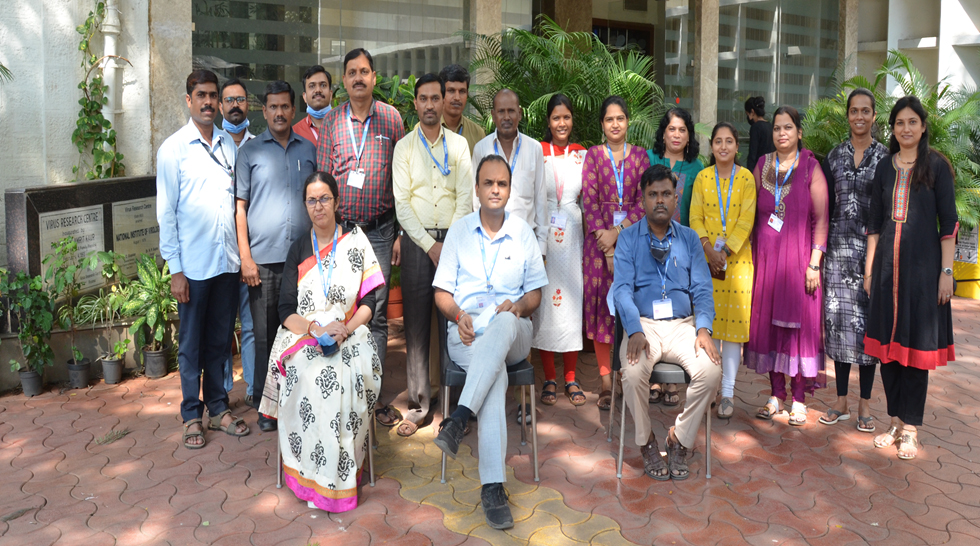| Sr. No. | Name of the staff | Designation |
|---|---|---|
| 1 | Dr. Anuradha Tripathy | Scientist F and Group Leader |
| 2 | Dr. Deepti Parashar | Scientist E |
| 3 | Dr. K. Alagarasu | Scientist E |

Research Areas
This group primarily does research on virological, clinical, epidemiological and immunological aspects of dengue (DEN) and chikungunya (CHIK) viruses. The group also provides diagnostic services to clinics and hospitals from Pune city as well as PHCs and Government hospitals from different parts of the country and to the NVBDCP.The group scientists have expertise in an outbreak investigation of dengue and chikungunya, economic evaluation studies, health technology assessment and undertaking systematic review-meta analysis studies.
| Sr. No. | Name of the staff | Designation |
|---|---|---|
| 1 | Dr. Anuradha Tripathy | Scientist F and Group Leader |
| 2 | Dr. Deepti Parashar | Scientist E |
| 3 | Dr. K. Alagarasu | Scientist E |
| Sr. No. | Name of the staff | Designation |
|---|---|---|
| 1 | Dr. Jayashri Pawar | Technical Officer-C |
| 2 | Dr. Rupali Bachal | Technical Officer-1 |
| 3 | Mrs. Deepika Chowdhury | Technical Officer-B |
| 4 | Mrs. Poonam Patil | Senior Technician-1 |
| 5 | Mr. Mahadeo Kakade | Senior Technician-1 |
| 6 | Mrs. MinalSonwane | Technician-C |
| 7 | Mr. Sanjeev Pandey | Laboratory Assistant 1 |
| 8 | Mr. Haribhau Supe | Laboratory Assistant 1 |
| 9 | Mr. Pradeep Gore | Laboratory Assistant-1 |
| 10 | Mr. Deepak Jadhav | Laboratory Assistant-1 |
| Sr. No. | Name of the staff | Designation |
|---|---|---|
| 1 | Dr Susmit Sambhare | Project Scientist C |
| 2 | Dr Naveen Minhas | Project Scientist B |
| 3 | Ms Priya Raul | T, Project Administrative Assistant |
1 Apex Referral Laboratory Program
2 Antiviral activity of approved drugs and natural peptides against dengue and chikungunya
3 Complete genome sequencing and molecular characterization of circulating dengue viruses circulating in India using a next generation-based sequencing approach.
4 Development and evaluation of an in-house developed multiplex real time RT-PCR assay and commercial kits for simultaneous detection of dengue, chikungunya and zika viruses in clinical samples
5 Repurposing of drugs towards anti-Dengue and Chikungunya viruses using the systems biology approach
6 Seroprevalence of SARS-CoV-2 among health care workers, laboratory personnel and general population in Maharashtra, India
7 Cost of illness analysis of COVID-19 cases in Maharashtra, India
8 Cost-analysis of diagnostic tests for COVID-19 at National Reference Laboratory in India